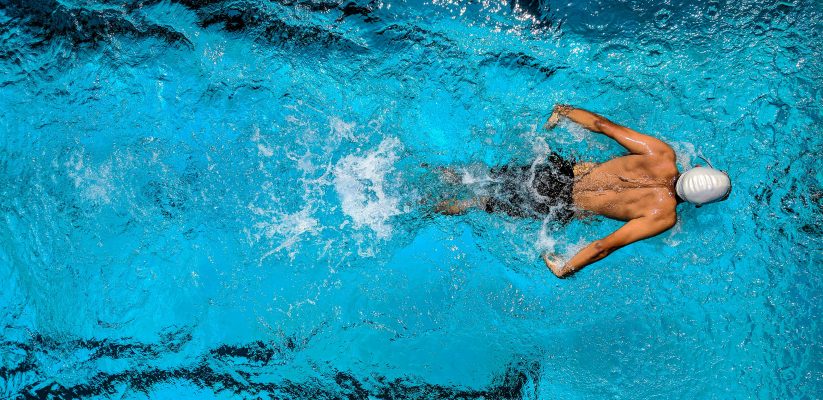When graduating from a sports science related degree, there are a few potential career paths that you can explore aside from being a Sports Scientist that you may not be familiar with.
Below we have outlined six possible routes that you can take your career, the associated responsibilities and prospective employers.
- Exercise Physiologist
An exercise physiologist specialises in the analysis of physical fitness to help patients improve their health or recover from illness and injuries.
You will design and implement exercise programmes tailored to patients specific health needs and medical conditions such as pulmonary and cardiovascular diseases, as well metabolic disorders and musculoskeletal conditions.
Common places of work include hospitals, rehabilitation centres, private medical care groups and public health organisations where key responsibilities include conducting fitness and stress tests through to developing customised exercise plans to increase physical activity, improve overall health, and support the rehabilitation process for individuals recovering from chronic diseases or injuries.
2. Sports Performance Analyst
A career path for a sport science graduate that many are not aware of, is that of a sports performance analyst.
A sports performance analyst prime function is to statistically analyse performance through obtaining key data within athletes or sports team’s performance to assist coaches to make more informed training decisions.
You will conduct detailed statistical led assessments and tactical analysis, providing insights that are crucial for planning and post performance evaluation.
Major employers are sporting governing bodies, professional and amateur sports teams ,individual athletes and private sporting technology firms.
3. Sports Science Researcher
If you enjoyed the process of conducting research within your sport science degree, becoming a sports science researcher where you collaborate to test hypotheses about how the human body responds to various physical and mental stresses could be a good career choice for you.
As part of the role you will develop research proposals and obtain funding from sponsors and institutions. Additionally, you will have to collate participant data, statistically interpret results and publish research findings in peer-reviewed journals whilst maintaining a high ethical standard.
Common employed routes are traditionally found within universities and government agencies, as well as pharmaceutical and healthcare companies.
4. Personal Trainer
Although you will need to additionally obtain a Level 3 in Personal Training qualification, you can submit your sport science degree to CIMSPA as a form of recognition of prior learning (RPL) to obtain insurance to operate as a Personal Trainer.
When operating in a personal training role, you will provide clients with personalised training and nutrition programmes based on clients individual needs, training aims, fitness levels and aspirations.
You can work at a gym, leisure centre or private personal training studio, but there are also opportunities to start a freelance business through opening your own studio, taking your services online or visiting clients in their home.
5. Multi-Sports Activities Coach
A multi-sports activity coach is someone who teachesthe fundamental skills, rules, and tactics of each sport, which can range from ball sports like basketball, hockey and football through to orienteering, climbing and outdoor adventure.
Multi-Sports coaches are normally knowledgeable or have a strong passion for most sporting disciplines and will have to lead small groups in addition to providing one to one feedback to students or attendees. You will have to plan lessons in advance, making sessions fun, engaging and be an excellent communicator to people of all backgrounds and abilities.
You can find roles across schools, training providers, charities, sport camps and outdoor adventure companies.
6. Sports Development Officer
A sports development officer’s primary focus is on increasing participation across various demographics to promote health, wellbeing and access.
They work to identify gaps in access and participation, developing initiatives that target underserved populations, such as women, the elderly, or disabled individuals in conjunction with coordinating with local sports clubs, schools, and community groups.
Part of the role is to help promote sports and physical activities through marketing and public relations efforts. You will organise events, tournaments, and leagues that not only boost participation rates but also increase community engagement and spirit.
Most job roles are full-time and are generally found within local councils, sporting educational institutions, and charities that revolve around health and community welfare.
***
Big thanks to Carl Smith for this article!

Carl has been a qualified fitness professional for close to two decades and has worked in numerous fitness management positions across the industry. Carl is CEO for Active Careers, a jobs board for fitness and health professionals. Carl holds a 1st class honours degree in Sport Science and a MSC in Applied Nutrition and ran his own fitness start-up company focusing on health in the workplace before selling it for undisclosed 7 figure sum in 2017. Carl is passionate about fitness, sales and business but loves nothing more than his beloved Norwich City, to which he has been a season ticket holder for 25 years.
Remember: if you need careers support, your Careers Team is only an email / a message away!
E: careers@westminster.ac.uk| Website | Facebook | Twitter | Instagram |Careers Blog
- An End-to-End Guide to Applying for Jobs: Where and When to Start! - 22 December 2025
- Graduate Success Series: a conversation with Ying Zhang - 18 December 2025
- Why Purpose is Your Greatest Asset in Higher Education - 23 October 2025
